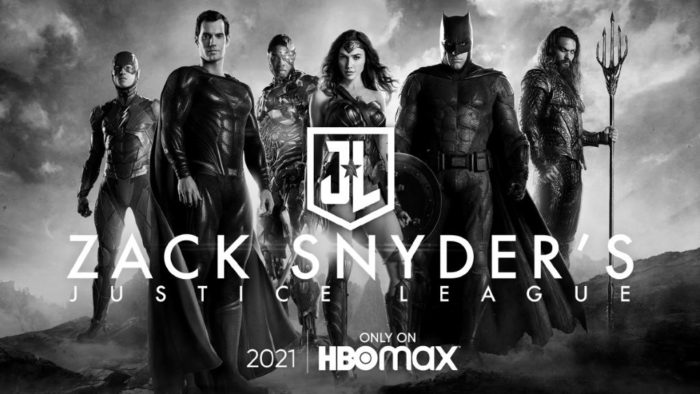17. What Can Christian Fans Learn From #ReleaseTheSnyderCut’s Success?
Podcast: Play in new window | Download (Duration: 1:19:20 — 74.0MB) | Embed
On May 20, director Zack Snyder announced that in 2021, DC fans calling to #ReleaseTheSnyderCut for the superhero film Justice League will get their wish. How do Christians see this fandom, and any other fandom joys, as biblical Christians?
Stephen and Zack survey the now-successful #ReleaseTheSnyderCut movement, talk about DC heroes, and explore the movie controversies.
Our questions include:
- What is the #ReleaseTheSnyderCutMovement?
- How did the #ReleaseTheSnyderCut movement start?
- Didn’t most fans hate Snyder’s DC movies, especially Batman v Superman: Dawn of Justice?
- Why is Stephen so passionate about this fan movement?
- So what did the Snyders and WB announce on May 20?
- What happens now as we move toward releasing Justice League?
- What do you think Christian fans can learn from this?
- How can Christian fans reject “inevitability” pressures about this and even more significant cultural trends?
- How can Christian fans accept the fact they may look crazy?
- Why must we reject the “binary rating” system of review and criticism?
 Quotes and notes
Quotes and notes
Stephen, Kerry Nietz, and Austin Gunderson versus Justice League (2017):
After the originally relased film version in November 2017, we couldn’t help critique it and call for Snyder’s version to be released someday:
Stephen: The characters are great. I love each and every one of them. But this rushed story and world around them felt shallow and empty. Sometimes literally. … Cities around them had no life. It needed another full hour. It needed Snyder’s deft hand in the editing and post-production.
Austin Gunderson: Steppenwolf was no match for Superman. That’s been the key strength of the previous films to me: that Superman wasn’t boring. I thought this movie managed to Make Superman Boring Again. Not because he was unlikable, but because he won so much I got tired of winning.
Kerry Nietz: If I had to name a fault, it would be in the stakes. They needed to create more of a sense of global peril. That could have been easily done with more small scenes in different locations. Possibly those are the types of things that were left on the cutting room floor.
Later we reunited to call more directly for Warner Bros. to #ReleaseTheSnyderCut:
Austin Gunderson: Justice League was in another league entirely. As the third in a series of dark, somber, mythopoetic examinations of superhero sociology, it needed to maintain a continuity of tone while upping the stakes. Whedon wouldn’t have been capable of doing that even if WB had prohibited him from straying from Snyder’s vision.
The strength of Man of Steel and Batman v Superman comes from their sincerity: Snyder really felt that he was making something epic and important, and he had sufficient skill to convey that sense instead of coming across as pretentious. But no one—no matter how skilled—can pull that off unless he himself has the degree of sincerity (innocence? faith?) he’s seeking to elicit in his audience.
People say that comedy is the hardest kind of writing because laughter is an objective metric. But I actually think that mythopoeia is dang hard, too, because of the degree of sincerity involved. Even the tiniest bit of cynicism—Whedon’s calling card—will kill it dead.
Stephen versus potential fandom idolatry:
On the Pop Culture Coram Deo podcast, Stephen and Snyder critic Jeff Wright sparred graciously. We also explored the graces and potential idols of fandoms like this one:
I think if we were to reboot our perception of the whole thing, then we could probably avoid seeing stories as either “yes or no,” absolute good/absolute bad, thumbs up/thumbs down, or the nastiness that fans have if they’re for or against The Last Jedi or for or against The Rise of Skywalker. . . .
To spread it beyond the Snyder Cut or Justice League fandom: this happens with a lot of fandoms, particularly when the story choices that the creators make are not pleasing to everybody. Or if they’re perceived as subverting the old stories. . . .
C. S. Lewis versus making “clever marks” about things:
In The Screwtape Letters and in his other works, C. S. Lewis decried this trend-chasing purpose of enjoying anything. Instead, he recommends we try to enjoy a thing “for its own sake,” for the simple (and maybe even godly) reason of finding pleasure in it. His satirical demon Screwtape wrote this about bad reasons for liking books:
And now for your blunders. On your own showing you first of all allowed the patient to read a book he really enjoyed, because he enjoyed it and not in order to make clever remarks about it to his new friends.
Stephen versus “objective rankings” for good or bad stories:
When Stephen reviewed Justice League (Joss Whedon version) for Christianity Today’s website, he accidentally “set a trap” for Rotten Tomatoes. Read the whole “plot” here. He concluded with this:
First, we must recall that movies, like any stories, are a highly subjective medium.
And as a hundred thinkpieces, taking positions in the matter of [Martin] Scorsese v. Superhero Movies have reminded us: Our interpretation of the very concept of “cinema” depends on our expectations. If you expect some deep meditation on The Human Condition, you will get annoyed by the fantasy tale of a man, shot full of magic/science, who turns into a noble super-soldier. But if you, being a human, choose to pursue one real aspect of The Human Condition—the fact that humans are conditioned to love fantasy hero stories—you’ll likely love that kind of story.
From there, our interpretations of “good stories” are also subject to many different factors. These may include:
- Maturity. Do I want a lighter story-world that’s pre-“sanitized,” in a way? Or a darker world more closely resembling our own?
- Expectations. Am I tiring of genre conventions and want bold new stuff? Or am I happy with old tropes shown-and-told anew?
- Simple trends. Given that people may prefer whatever they enjoy to be popular, how does trend-chasing figure into story appeal?
- Life events. Given my personal circumstances at the moment, what kinds of stories will seem to meet me closer to where I am?
- Relationships. Am I more or less likely to enjoy a particular story based on whether my friends and family will like or dislike it?
- Time changes. Could a story I disliked decades ago seem brilliant after another few years, or even after a simple second viewing?
These items overlap, and they’re already too reductionistic. But the Rotten Tomatoes concept reduces these human factors further still.
Second, we must see that Rotten Tomatoes rankings don’t, and can’t, take these factors into account.
When you start with a movie, a mix of many creative voices, energies, expectations, audience appeals, risks, consumer appeals, and beyond …
Then go to a movie review, a mix of the critics’s life-experiences and belief biases as well as all those human factors I’ve tried to summarize …
And then reduce this review still further to simple up or down vote …
Then you end up with a gross oversimplification of how movies work and how movie reviews work—or ought to work.
Next on Fantastical Truth
Next week (for real this time!) we’ve invited Chase Replogle, from the Pastor Writer podcast, to explore one of his favorite topics: well, speaking of superheroes, what hath superheroes to do with the Bible? We’ll especially explore the place of Samson in the DNA of superhero stories, but find some surprising twists about this tale that we should take as a sober warning.






























Share your thoughts about this podcast episode